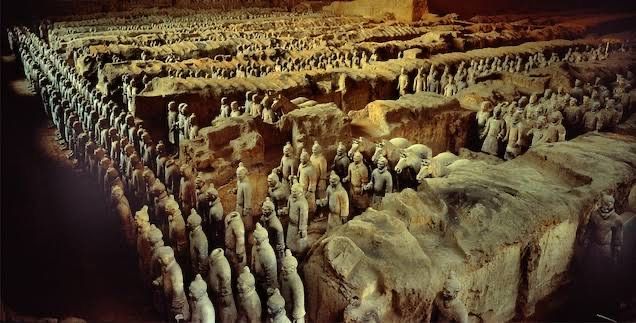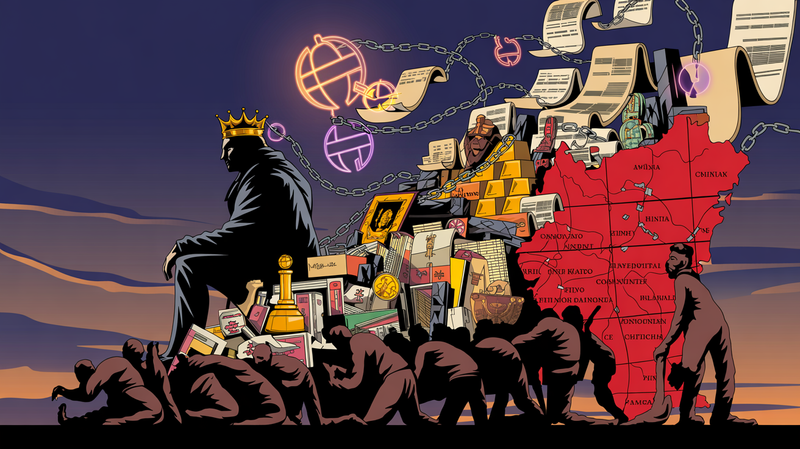The Eternal Quest of Qin Shi Huang: From Unification to Immortality
Over two thousand years ago, in the tumultuous world of ancient China, emerged a figure of unyielding ambition and unprecedented vision, Qin Shi Huang, the first Emperor of unified China. His reign marked the beginning of the Imperial Era, a time of intense consolidation, grand projects, and a relentless quest

Over two thousand years ago, in the tumultuous world of ancient China, emerged a figure of unyielding ambition and unprecedented vision, Qin Shi Huang, the first Emperor of unified China. His reign marked the beginning of the Imperial Era, a time of intense consolidation, grand projects, and a relentless quest for immortality that led him down a path of alchemy, exploration, and mysticism.
Born as Ying Zheng in 259 BC to the King of Qin, one of the seven warring states, he ascended to the throne at the tender age of 13. His reign was marked by a ruthless pursuit of power, crushing his enemies with unrelenting force. By 221 BC, he had defeated all the other warring states, unifying them under his rule. Proclaiming himself as 'Qin Shi Huang' or the 'First Emperor of Qin', he ushered in a new era of centralization, introducing standardization of currency, weights, measures, and even the writing system.
Yet amidst his grand achievements, his obsession with attaining immortality took root. It was said that the Emperor was haunted by dreams of his own mortality. Fearful of death and desirous of eternal life, he commissioned his alchemists and scholars to concoct a potion that would render him immortal. The Emperor's belief in immortality was so steadfast that he was willing to go to any length to achieve it.
Thus began his quest for the fabled Elixir of Life. As word of his obsession spread, eager opportunists emerged, peddling 'immortality herbs' and 'longevity potions.' Many of these elixirs contained mercury, believed by the ancients to bestow eternal life. Ignorant of its deadly nature, the Emperor consumed these mixtures, certain that they would grant him endless years.
He also sponsored several maritime expeditions to the legendary Penglai Mountain, an island said to be inhabited by immortals, where the elixir of life was rumored to exist. Lead by the explorer Xu Fu, these expeditions were laden with young men and women – intended to be offered to the immortals in exchange for their secrets. Despite the numerous journeys, they returned empty-handed each time.
However, time waits for no man, not even an Emperor. In 210 BC, while on one of his inspection tours, Qin Shi Huang died. Many believe that his death was hastened by the mercury-laden elixirs he had been consuming in his quest for immortality. His tomb, a grand mausoleum guarded by the famous Terracotta Army, was a testament to his fear of death and the afterlife.
Thus ended the tale of the first Emperor of China, a man of great achievements but ultimately undone by his own relentless pursuit of immortality. His legacy remains a testament to the human desire for eternal life, a stark reminder that our time on earth is fleeting and precious.




